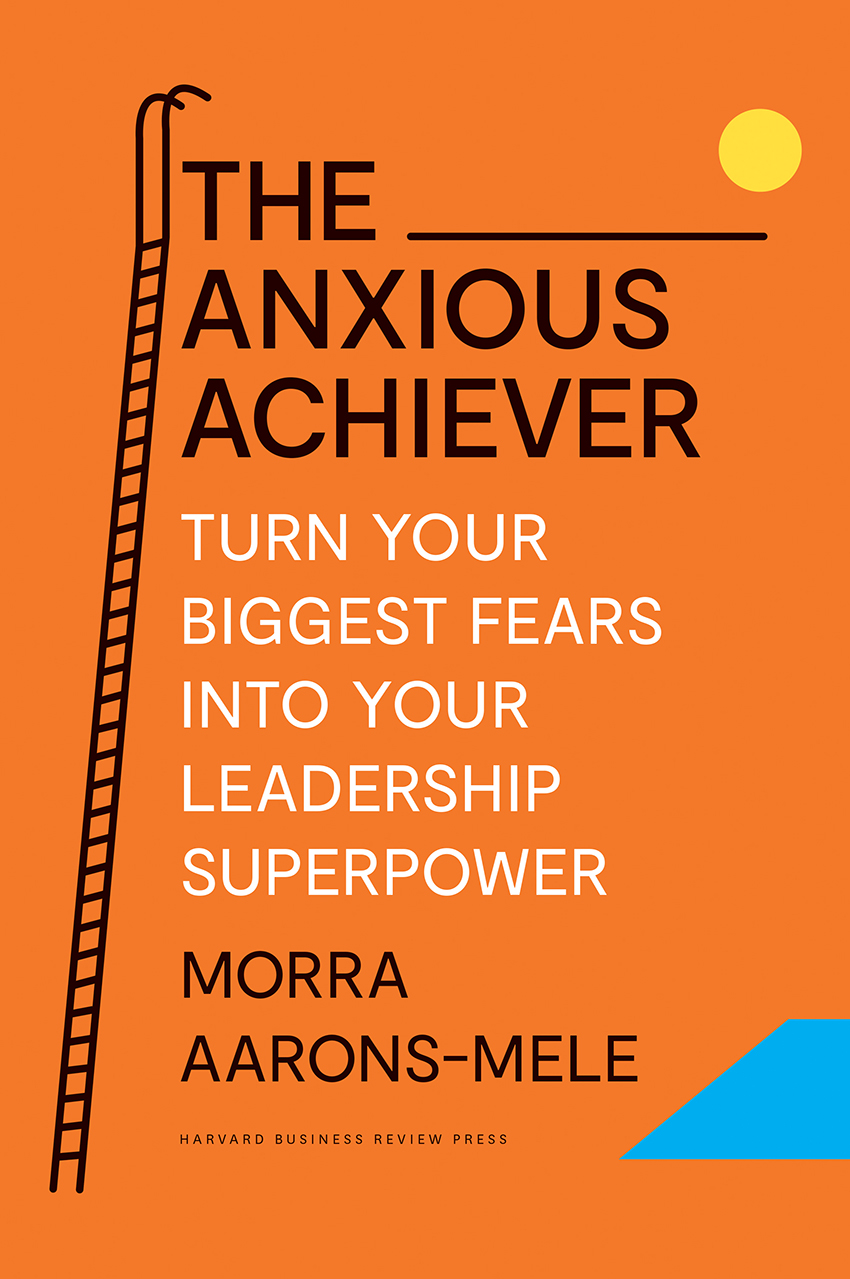By Ray Bert
The Anxious Achiever: Turn Your Biggest Fears into Your Leadership Superpower, by Morra Aarons-Mele. Boston: Harvard Business Review Press, 2023; 272 pages, $30.
What traits come to mind when we think about the classic image of a leader? Among many other possibilities, words like “bold,” “confident,” and “fearless” probably come to mind for many. “Anxious,” on the other hand, probably doesn’t make many lists.
But what if a very significant number of obvious leaders and high achievers do, in fact, routinely battle anxiety — and simply don’t show it or acknowledge it? Even more tantalizing: What if their anxiety is not solely an obstacle to be “overcome” but rather part of what makes them successful?
The Anxious Achiever, based on a podcast of the same name that is one of the most successful in the management genre, has a very specific, articulated mission: “reframe how we think about anxiety in the context of leadership and organizations.” Author Morra Aarons-Mele is also a successful writer, speaker, consultant, and entrepreneur — who happens to have chronic, clinical anxiety issues. She realized through the course of her increasingly successful career(s) that she had plenty of company in that respect — far more than most would generally guess. Her podcast and this book represent an ongoing exploration — theoretically and empirically — of the nexus between anxiety issues and achievement.
The book relies on several key observations. First, if so many highly successful people experience anxiety frequently — and Aarons-Mele has spoken to many — then clearly a lack of anxiety (“fearlessness” if you will) is not a prerequisite for a leader. The second is that by confronting, overcoming, or pushing through their anxieties, people very likely 1) develop skills, such as empathy and teamwork, that make them more effective leaders and 2) discover that many of the same things that drive their anxiety also, when properly managed, drive their success (for example, planning ahead and rarely settling for “good enough”).
The Anxious Achiever is neatly divided into two parts. The first, titled Getting to Know Your Anxiety, sets out to “describe and normalize the problem many leaders face: how to succeed and inspire others when you’re grappling with anxiety yourself.” Here the book explores, in general and through examples, the roots of anxiety and how to recognize what triggers it as well as how that anxiety can be a powerful internal motivator for focus and productivity.
The longer second part is dubbed A Leader’s Tool Kit for Managing Anxiety at Work and is chock-full of examples of the many different ways that anxiety manifests in the workplace and the strategies — healthy and unhealthy — that often go hand in hand with trying to manage it. The chapter headings here are to the point, among them: Negative Self-Talk; Perfectionism; Thought Traps; Control; Feedback, Criticism, and Imposter Syndrome; and Social Anxiety.
If you read those phrases and recognize yourself in them, congratulations, you’re probably already aware of and trying to manage your anxiety-based issues. And if they don’t ring familiar, maybe you’re largely anxiety-free (and congratulations there as well). But, perhaps, consider reading a little deeper to see if maybe you do struggle with some of those issues but haven’t recognized it yet. As Aarons-Mele notes, there are powerful societal biases that argue against acknowledging anxiety, even to ourselves.

Because anxiety can be a serious mental health issue, Aarons-Mele also takes care to make an important note: While she is in certain ways an expert on anxiety, she is not specifically trained or licensed in the mental health field. She therefore partnered with a licensed psychotherapist to help vet the book’s content from that specific perspective.
Relatable and persuasively written, The Anxious Achiever is a refreshingly different and realistic take on examining yourself and your habits and rethinking or adjusting them to boost your career performance. You may or may not like thinking of it in terms of finding a hidden “superpower” (as the book references occasionally). But you can just as easily frame it as harnessing and leveraging a personality trait’s positive side rather than succumbing to its negative side. Either way, for anyone with any level of anxiety issues, there is plenty here to inspire you — starting with the reminder that you are very much not alone.
This article first appeared in Civil Engineering Online.



